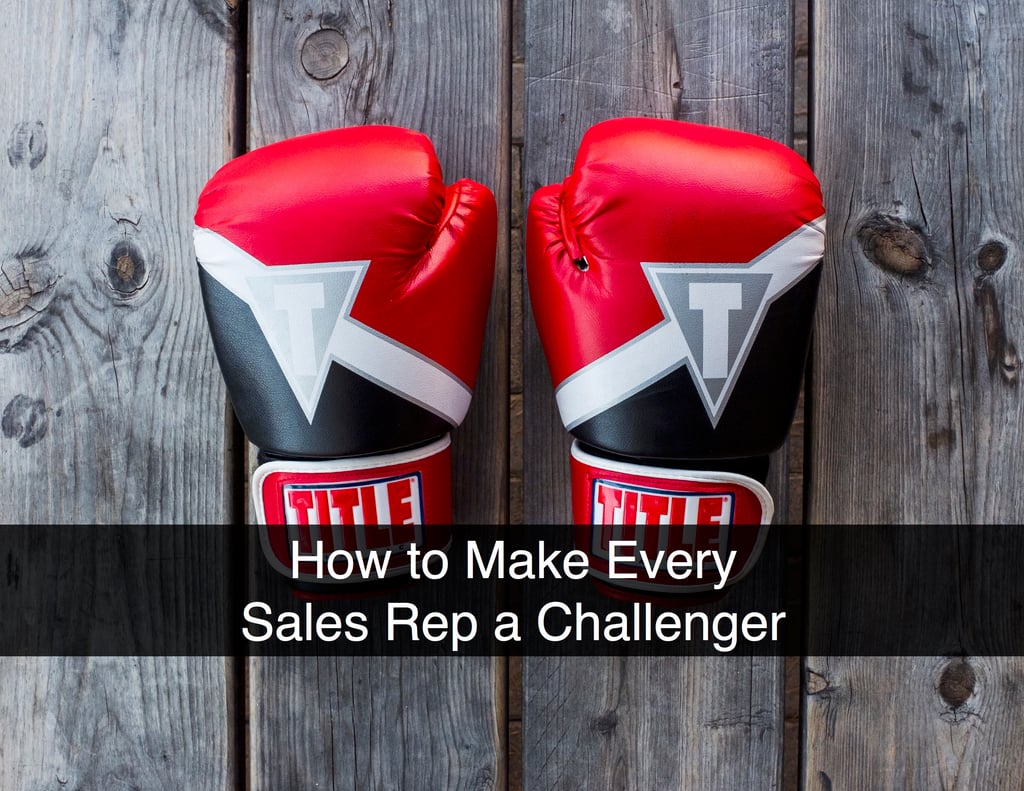
I’ve been reading the now-classic business book, “The Challenger Sale: Taking Control of the Customer Conversation" by Matthew Dixon and Brent Adamson. As I continue to read, it’s becoming increasingly clear to me that value selling can help every sales rep perform like a Challenger by helping them adopt the complementary attributes that make up the profile of this likely sales leader.
Early in, the authors share data indicating that almost 40% of star performers fall into the Challenger category, as do 23% of core performers. Star performers are defined as "the top 20%" of performers at each company studied. Although I haven’t found a definition of core performers, my guess is that they are the middle 60% of performers and are probably achieving at least 80% of quota. If you could hire all Challengers, 63% of your performers would likely be core performers or better (achieving at least 80% of quota).
Attributes of a Challenger
With this insight, companies are likely to strive to hire as many Challengers as possible for obvious reasons. To do so, companies should look for the following six attributes that present as "statistically significant" in identifying a Challenger as defined in The Challenger Sale:
- Offers the customer unique perspectives
- Has strong two-way communication skills
- Knows the individual customer's value drivers
- Can identify economic drivers of the customer's business
- Is comfortable discussing money
- Can pressure (not bully) the customer
Keep in mind that while it is very difficult to hire Challengers exclusively, most reps have varying levels of all of the Challenger attributes identified. Those that are strongest across the board can benefit from tools that will permit them to do what they naturally do, even better. For reps that don’t fully fit the Challenger mold, you can leverage value selling to strengthen their Challenger attributes and improve sales success.
Let’s focus on the first five attributes. When these skills are cultivated and used consistently, it’s easier for any rep to exert pressure on the customer by making the buyer’s decision obvious.
1. Offers the Customer Unique Perspectives
We all have trouble seeing ourselves objectively without metrics that help measure our performance. Companies are no different. The challenge is that it’s hard for companies to benchmark themselves against other companies. That’s why value selling starts with a good assessment of your prospect’s business challenges.
Consider using that assessment to survey your prospects, and then use that data as a benchmark. If you can show your prospect where they stand as compared to other companies, you can really open their eyes and offer them a perspective that they may not have had otherwise.
2. Has Strong Two-Way Communication Skills
This skill can be hard to teach. We have two ears and one mouth for a reason, and yet we still tend to ramble on a sales call without giving the prospect sufficient time to talk. When a rep works through the assessment with your prospect they are forced to ask questions, listen to the answers, and collect the information they need.
After completing the assessment, the next step in value selling is to show your prospect the quantifiable results you can deliver. Again, in order to do so, the rep must ask questions, collect and confirm the answers, to calculate and demonstrate results.
Finally, to generate a strong business case, the rep needs to confirm the information collected with everyone involved in the purchase decision, and gather more information to determine the solution and pricing you will be offering. By incorporating assessments, value determination, and business case development into your sales process, you can reinforce the importance of two-way communication and strengthen the required communication skills.
3. Knows the Individual Customer’s Value Drivers
Conducting a thorough assessment will help your rep identify the customer’s value drivers and determine whether they align with what you offer. If the prospect’s value drivers don’t align with what your solution delivers, it becomes clear that your solution may not currently be a good fit. This allows the rep to respectfully walk away from the sale of a solution that’s unneeded or unnecessary at the current time.
Chances are the prospect will respect the rep’s honesty, increasing the likeliness that the buyer will come back when they are ready. And the rep can better use this time on a sales opportunity that is more likely to close.
4. Can Identify Economic Drivers of the Customer’s Business
This is the real sweet spot of value selling. A well-researched assessment reveals the prospect’s individual value drivers, from which you can determine the economic drivers your solution delivers. Your reps can really focus on the value and economic drivers when discussing how your solution addresses these business challenges, especially when presenting your business case for budget approval.
5. Is Comfortable Discussing Money
Almost nobody likes to talk about money ... not Congress, not families, not even sales people. When sales people talk about money, it’s usually about commissions and revenue. The challenge is, every good sales rep needs to be comfortable discussing money with prospects.
The best way to build comfort and confidence is to lead with the potential value of your solution. When you talk about value before presenting the actual cost to the customer, the customer hears the upside first so you can more easily defend the price to value, if necessary.
That’s why presenting a business case with every proposal is so important. It clarifies the value that will be delivered along with the cost, and gives your rep the tools to focus on total ROI instead of cost. If you can put these capabilities in your reps’ hands, it will make it much easier for them to talk about money.
Conclusion
Not every rep you hire will be a Challenger, but incorporating value selling tools and resources into your sales process, will give every rep the opportunity to adopt the attributes that define the Challenger.
Using assessments to benchmark your prospects can help reps provide a unique perspective that allows your prospect to see how they are performing against their peers. Requiring reps to offer an initial determination of your solution’s value will create an awareness of the prospect’s value drivers. Finally, including a business case with every sales proposal will ensure that reps identify the economic drivers that will make the money discussion easier. This comprehensive value selling process will naturally incorporate two-way communication, helping every rep perform more like a Challenger.
While I can’t calculate exact results for your business, I can logically conclude that leveraging value selling to strengthen Challenger attributes across your sales team will increase the number of reps that beat their quota.









